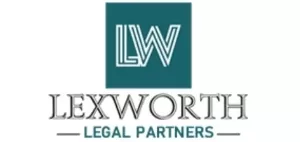- within Intellectual Property topic(s)
- in United States
- with readers working within the Law Firm industries
- within Intellectual Property topic(s)
- in United States
- within Tax, Media, Telecoms, IT, Entertainment and Privacy topic(s)
- with Finance and Tax Executives
- with readers working within the Accounting & Consultancy, Banking & Credit and Business & Consumer Services industries
The recent trademark dispute between Paystack, a prominent Nigerian fintech company, and Zap Africa, a cryptocurrency exchange, has brought Nigeria's intellectual property laws, particularly those relating to trademarks, into sharp focus. The core of the dispute revolves around Paystack's launch of a consumer-facing product named "Zap by Paystack", which Zap Africa claims infringes its existing "Zap" trademark in Class 35.
Background
According to available facts, Zap Africa had initially filed an application to register its "Zap" trademark in Class 35 (advertising/business management) in October 2023, Class 42 (technology services) in June 2024, and Class 36 (financial services) in March 2025. On the other hand, Paystack filed an application for registration of its "Zap by Paystack" trademark in Classes 35 and 36 in December 2023.
The respective application timeline can be summarised below:
| Trademark | Class | Year |
|---|---|---|
| Zap | 35 | October 2023 |
| Zap by Paystack | 35 | December 2023 |
| Zap by Paystack | 36 | December 2023 |
| Zap | 42 | June 2024 |
| Zap | 36 | March 2025 |
The Unfolding Debacle
Both Zap Africa and Paystack have laid claims to their exclusive right to their respective trademarks, but it is desirable to analyse the various legal issues that may arise from the conflicting claims of both parties. Without doubt, the Trademarks Act, CAP T13 Laws of the Federation of Nigeria, 2004 (the "Act") is the principal legislation governing trademarks in Nigeria and copious references would be made to its provisions as might be necessary for better appreciation of the inherent legal issues.
The trademarks system in Nigeria is operated on two fundamental principles. First is that trademark applications follow the first-to-file system, denoting that the entity which first files an application for registration of a trademark with the Trademarks Registry generally has priority rights over that mark. Secondly, in tandem with the Nice classification system, trademarks are registered in classes where the goods/services it covers, fall.
Thus, a proprietor of a prior registered trademark may only enjoy protection in respect of classes in which his trademark is registered. This is the whole purport of Section 5(1) of the Trademarks Act which in unequivocal terms grants a proprietor of a registered trademark exclusive rights to use the mark for the registered goods or services. However, it should be noted that the above-cited provision is subject to other provisions of the Trademarks Act to be discussed subsequently.
A literal interpretation of the foregoing provision of the Act would only support Zap Africa and Paystack's claim priority over Zap in class 35 and Zap by Paystack in class 36 respectively being pioneer registrants of the trademarks in each class. As already established, a proprietor cannot enjoy protection in a class which his trademark has not been registered.
Another key issue to be considered is whether despite being pioneer registrants in class 35 and class 36, either Zap Africa or Paystack can claim exclusivity over the word "Zap" such as to prevent any other person from using a similar word in a similar class. Put differently, can Zap Africa prevent Paystack from using the word "Zap" in class 35 and can Paystack also prevent Zap Africa from using the word "Zap" in class 36. The position of the law appears to be straightforward on this issue. Exclusivity granted by section 5 of the Trademarks Act is subject to the provisions of section 7 and 8 and impliedly section 13(2) of the Act.
By section 7 of the Act, the proprietor of a trademark may not have the locus to restrain or interfere with the use by any person of a trademark similar to his own, where it can be established that the use of the trademark preceded the proprietor's own use or registration of his own trademark. To this end, where Zap Africa or Paystack is able to establish prior use, the registration of the mark by either of them may not prevent any other person from being put on the trademark register in respect of that similar mark. This is what the Act refers to as honest concurrent use in Section 13(2) thereof.
Furthermore, section 8 of the Act prevents interference by the proprietor of a registered trademark with the bona fide use by a person of his name or name of his place of business. On the strength of this provision, it may be argued that Zap Africa's adoption of the word "Zap" is justified as being part of its corporate name but this same narrative may not be put forward by Paystack in using "Zap by Paystack" as the contested word is "Zap" and not "Paystack". However, we submit that relying on this line of argument by Zap Africa may open a litany of claims to the word "Zap" as research has shown that several entities exist on the register of the Corporate Affairs Commission (CAC) with the word "Zap" as part of their corporate names1..
Another angle to consider is the applicability of section 9 of the Act which permits registration of distinctive marks as opposed to generic words or words which describe the goods or quality of the goods to which they relate. "Zap" ordinarily means2 "move or cause to move suddenly and rapidly" and the use of Zap in relation to financial technology services may negate claims of distinctiveness, although it may not be totally correct to claim th at the word is generic. Technological solutions are ordinarily in their nature meant to be fast or delivered in a rapid sequence, thus it may be submitted that the word Zap already suggests the quality of services being rendered. Should this be the case, either party loses its exclusivity claim. An inflection just as used by Paystack, "Zap by Paystack" may then pass the distinctiveness test.
Even if a trademark is not registered, the common law tort of passing off protects businesses against misrepresentation that their goods or services are those of another. This requires demonstrating goodwill associated with the unregistered mark and actual or potential damage due to the misrepresentation.
Identifying the Gaps
The Paystack vs. Zap Africa dispute underscores systemic gaps in Nigeria's IP framework, particularly the Trademarks Registry's failure to detect conflicting marks, as seen in this case although we have established that the co-existence of conflicting marks is not outrightly prohibited by the Act. A significant step toward addressing these inefficiencies was recently announced by the Minister for Trade, who outlined ambitious plans to revamp the Nigerian Trademarks Registry to ensure it aligns with global standards for a modernised, efficient trademark regime. This initiative, aimed at enhancing registry processes, could mitigate disputes like the one between Paystack and Zap Africa by improving conflict detection and streamlining registration.
It is our position that global IP trends, such as AI-driven trademark searches and blockchain for digital branding, could prevent such disputes by enhancing registry efficiency and verifying mark authenticity.
Also, in resolving this dispute, both parties could pursue an amicable settlement to avoid costly litigation, as seen in global practices where settlements preserve brand identities (e.g., Apple vs. Cisco's "iPhone" dispute). As a compromise, Paystack could rebrand its product to another name that conveys speed and aligns with fintech services, thereby resolving the conflict while maintaining market harmony. On the other hand, a full blown infringement action may be a way to establish the rights of the parties. We note that an action for passing off may not be appropriate in this circumstance as the subject matter of dispute is not an unregistered mark.
From a regulatory perspective, Nigeria must amend the Trademarks Act to define infringement and adopt AI tools to align with global standards, ensuring a balanced IP ecosystem.
Conclusion
The Paystack vs. Zap Africa dispute tests Nigeria's trademark law, balancing class-specific registrations and confusion risks. A ruling in favour of Zap Africa, could disrupt Nigeria's "first-to-file" system, encouraging startups to prioritise market presence over registration. Conversely, a Paystack victory will reinforce the "first-to-file" system but risk legitimising regulatory oversights. In this dispute, both Paystack and Zap Africa were allowed to file for "Zap" in Class 36, even though their trademarks are similar enough to cause confusion among customers. As the matter remains sub judice, the final determination of the parties' rights rests with the courts, which will clarify the application of the Trademarks Act in this context.
Either outcome will prompt legislative scrutiny to address gaps in the Trademarks Act and registry processes. Companies must conduct thorough trademark searches and document use, while Nigeria should embrace global IP trends, AI, digital tools, and international treaties to foster a robust, innovation-friendly IP framework.
Footnotes
1. Examples are Zap International Nig Ltd registered in 1992, Zaps Commercial Ventures Limited registered in 2004 and a host of others
2. Oxford English Dictionary Online, 3rd ed., Oxford University Press, 2005.
The content of this article is intended to provide a general guide to the subject matter. Specialist advice should be sought about your specific circumstances.



